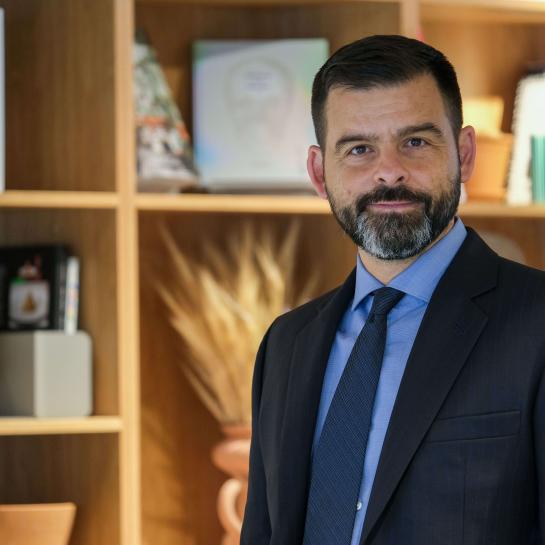
Acronym: TORNADO
Title: foundaTion mOdels for Robots that haNdle smAll, soft and Deformable Objects
| Call | HORIZON-CL4-2024-DIGITAL-EMERGING-01 |
| EU nr | 101189557 |
| Period | 42 months - 01.01.2025 to 30.06.2028 |
| Project budget | € 7,449,095 |
| VUB budget | € 356,625 |
| Contact | Prof. Vagelis Papakonstantinou |
What is the TORNADO project about and what are the main goals?
The TORNADO project aims to develop a groundbreaking cloud robotics system for the navigation of an autonomous mobile robot (AMR) in handling small, soft or deformable objects (SSDs), within complex and dynamic environments. From a functional perspective, the core vision of TORNADO is to build and integrate advanced AI-empowered mechanisms that will robustly underpin sophisticated robotic perception, cognition, interaction and action tasks in real-world environments, providing AMRs with advanced SSD manipulation capabilities. The project’s objectives are: (i) Boosting ability of AMRs to handle SSDs within complex and dynamic environments, by making breakthrough advances in the use of Framework Models (FMs) and AI/robotics technologies for self-adjusting planning, navigation and manipulation; (ii) Improving adaptivity of FMs for AMRs operating in complex, dynamic settings; (iii) Raising the level of robotic perception and safe interaction, in varied contexts; (iv) Developing advanced hardware solutions facilitating cloud-enabled AMRs capable of completing difficult SSD manipulation tasks, and/or the diffusion of autonomous robots to new sectors; (v) Delivering a functional system of cooperating, cloud/AI-enabled autonomous robots and improve performance in various industry sectors under challenging conditions.
What are the present-day limitations and challenges in autonomous mobile robots (AMRs)?
At present, autonomous mobile robots (AMRs) equipped with arms/grippers can only effectively grab and release certain types of objects in uncluttered environments and perform a range of simple manipulation actions, such as throwing, sliding, pushing, and poking. Current solutions face challenges in more complex scenarios, such as dexterously handling small, soft or deformable objects (SSDs) within crowded spaces where humans are also operating and interact with the robots. Many SSDs can be unpredictable to manipulate, changing shape and properties in response to contact with the robot or the environment, thus often requiring real time adaptation to changing conditions. In addition, SSDs may have complex internal structures which are not easily visible or measurable, while their dynamics may be difficult to model accurately.
In which different contexts can the TORNADO AMR be used?
It is envisaged that the TORNADO cloud robotics system will be used in many different contexts, and find applications across various industry sectors. To demonstrate this, the system will be pilot tested in three distinct use-case scenarios, namely: a) flexible small gears manipulation and deformable ply-sheets handling at a mechanical precision parts factory, with a focus on adaptivity for manipulation of SSDs of different sizes in human-robot collaboration environments; b) palliative patient care at a healthcare setting, with a focus on social interaction, HRI and LfD; and c) product quality sampling/waste picking at a dairy processing factory, with a focus on optimal accommodation of multiple, independently issued human orders, LfD and manipulation of many SSD product/material types of various forms.
What is VUB’s role in the TORNADO consortium?
In the scope of task 1.3 (Legal, ethical and data collection monitoring), VUB will carry out a comprehensive assessment for the identification and analysis of legal and ethical issues associated with the development of the TORNADO system, pinpoint any legal considerations and ethics-related risks related to the deployment of the AMR in different contexts, and offer recommendations to ensure the project outputs are in line with EU and Horizon Programme requirements. Moreover, VUB will have an active role in monitoring research activities in the project to ensure they adhere to international standards and core principles for the ethical conduct of research.
